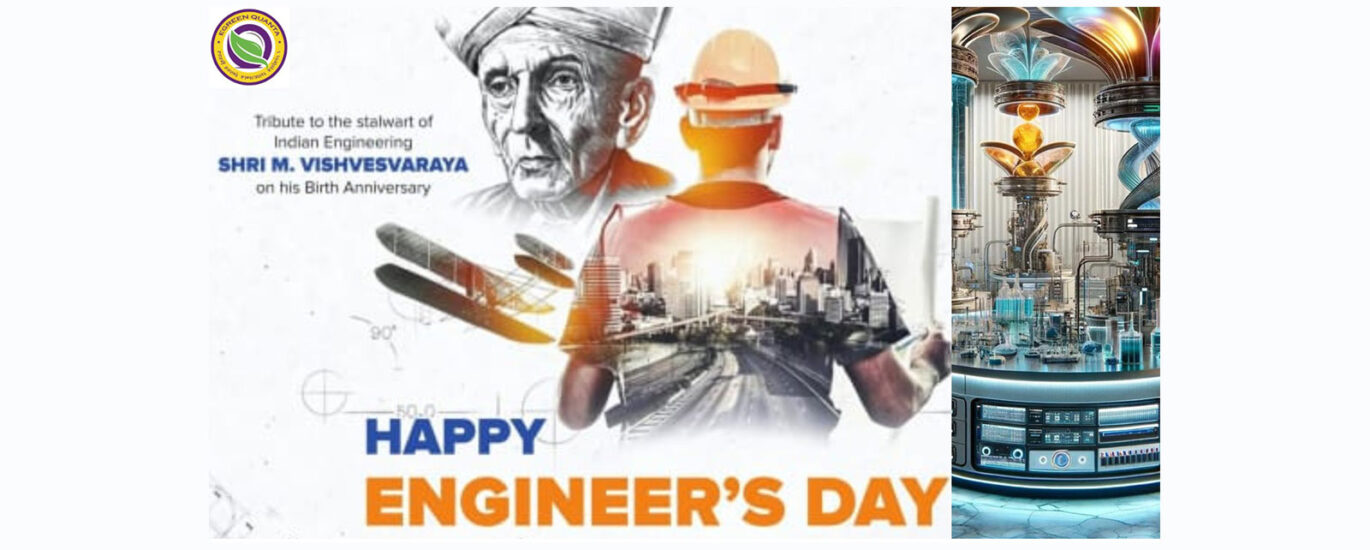~ Science is a beautiful gift to humanity; we should not distort it.~
Engineers Day in India commemorates the birth of Indian engineer Sir Mokshagundam Visvesvaraya, who made significant contributions to infrastructure development. Engineers are essential in tackling difficult problems and developing innovative solutions. Exploring the potential of quantum computing in fields like materials science, chemistry, and outcome prediction simulations requires a thorough understanding of its practicality and advantages. Engineers’ dedication and creativity are honored on Engineers Day, a day to look forward to groundbreaking technologies impacting fields like communications and information technology.
Quantum technology is a big deal:
Quantum technology, based on quantum mechanics, allows for unprecedented processing power and efficiency by allowing systems to exist in multiple states simultaneously. This differs from classical technologies that rely on binary states. Quantum computers use “qubits” that can simultaneously hold information in the “0” and “1” states, allowing for all possible solutions to coexist. This phenomenon, called superposition, allows for all possible solutions to coexist. Although qubits are physically separated, they can be correlated, allowing one qubit’s state to depend on another, a crucial aspect of quantum computing, known as the entanglement principle.
Scientists and Engineers in the Field of Quantum Technology:
Creating and applying quantum technologies is an area where engineers are leading the way. They play an essential role in bringing theoretical ideas into reality through their expertise in experiment design, prototype construction, and complex system integration. To keep up with the ever-changing landscape of quantum technology, engineers are bringing together experts from physics, computer science, materials science, and other related fields to innovate and overcome obstacles.
A Future-Ready Curriculum and Skills Set:
Educational programs must adapt to prepare future engineers for the quantum revolution by incorporating practical knowledge of quantum mechanics, computer programming, and engineering design, along with interdisciplinary study. Through research opportunities and internships made possible by university-industry partnerships, students can gain real-world experience. Quantum computers with unique properties like superposition, entanglement, and interference can outperform classical computers in certain computations. However, there are still challenges in developing algorithms that utilize this technology.
Improving quantum technologies presents engineers with a number of obstacles:
Environmental factors significantly influence quantum state decoherence, which is crucial for computations and transmissions. Designing scalable quantum systems is challenging due to the difficulty in maintaining stability and error rates. Quantum error correction methods are difficult and resource-intensive to implement. Finding suitable materials for stable quantum behaviors at operating temperatures is also a challenge.
So, “Egreen Quanta” is committed to expanding quantum computing limits by investing in research and development, fostering multidisciplinary collaboration with academic institutions and businesses, and building prototypes to test quantum systems in real-world settings and help engineers refine technologies before implementing them on a larger scale.
Conclusion
This National Engineers Day, we’d like to express our gratitude to the engineering community for helping to pave the way for quantum computing. Their perseverance and creativity will lead to future innovations that improve daily lives and solve current problems. Let’s seize this new horizon and motivate future engineers to expand the limits of what is thought possible.




